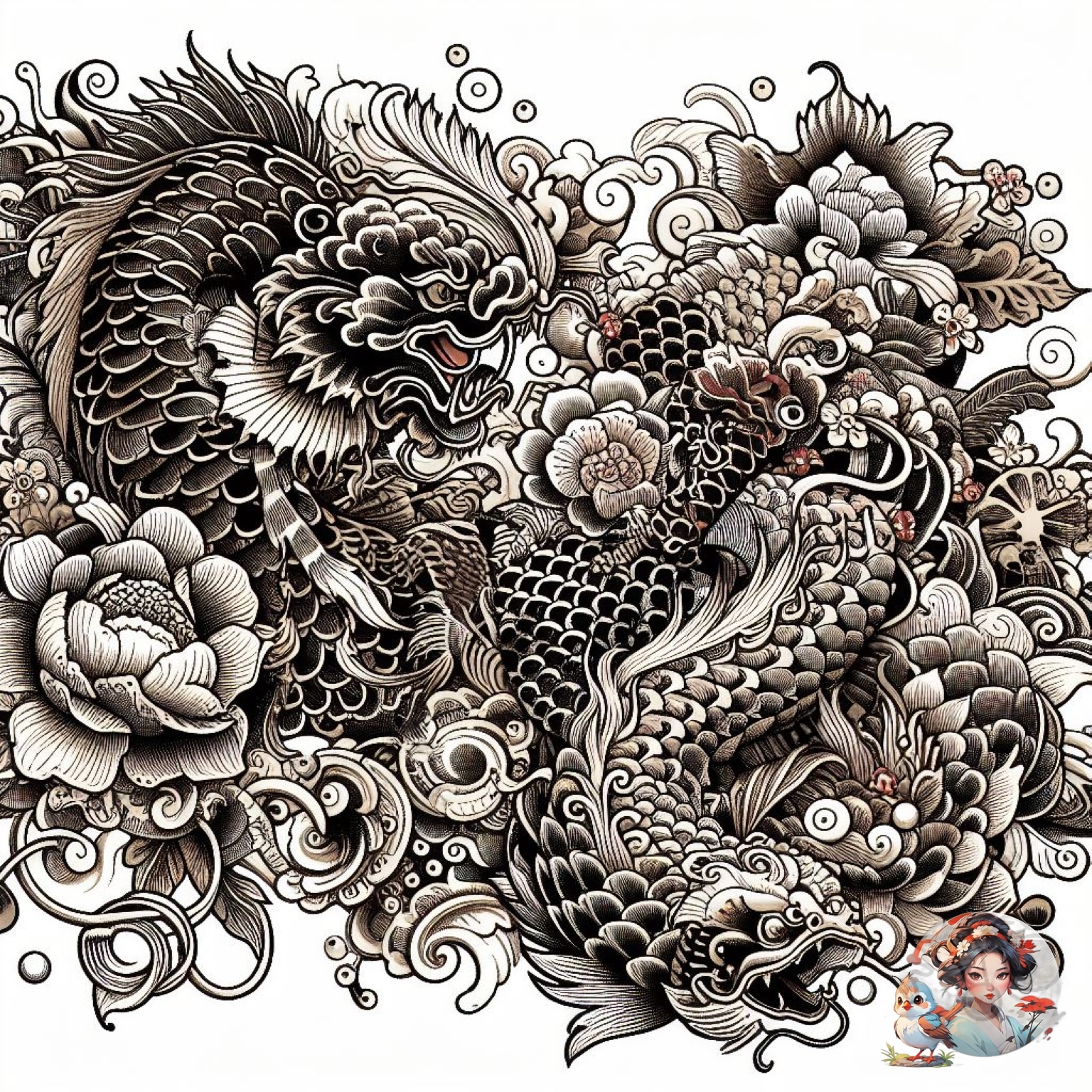The art of Japanese tattoos, known as irezumi, has a rich history that reflects cultural transformation. Throughout Japanese history, tattoos have been a symbol of tradition and societal shifts. From the revered status of the samurai to the stigma of tattoos during the Meiji era, the journey of Japanese tattoos offers a compelling glimpse into the changing perceptions of body art.
The fusion of traditional Japanese aesthetics with modern interpretations has sparked a renewed interest in irezumi, both within Japan and around the world. Let’s explore the enigmatic allure of Japanese tattoos and their profound impact on the global landscape of body art.
Table of Contents
ToggleThe historical significance of Japanese tattoos spans centuries of cultural tradition and symbolism. Traditional tattoo designs, called irezumi, have evolved alongside changing tattooing techniques. These intricate designs were initially used to mark criminals but later became symbols of status, bravery, and spirituality. The evolution of tattoo techniques has mirrored shifting societal attitudes towards body art, from being stigmatized to gaining acceptance as a form of self-expression.

The traditional motifs and symbols, such as dragons, koi fish, and cherry blossoms, continue to hold deep cultural meaning and significance. Japanese tattoos have transcended mere body art, becoming a powerful form of storytelling and personal expression, reflecting the rich history and artistic traditions of Japanese culture.
Japanese tattoos, also known as irezumi, are deeply rooted in traditional Japanese culture and hold immense significance as a form of artistic expression. Each intricate design element carries traditional meanings, often representing cultural beliefs, mythology, and historical tales. Symbols such as dragons, koi fish, and cherry blossoms convey rich cultural symbolism within Japanese society. These tattoos also reflect the individual’s personal narrative and spiritual journey.
The increasing acceptance of tattoos in Japan signifies a shift in societal attitudes, highlighting the reclamation of traditional art forms and cultural identity. This growing acceptance exemplifies the evolving perception of body art and its enduring place within Japanese culture.
The perception of Japanese tattoos is shifting in both Eastern and Western societies, shedding light on changing attitudes toward body art. In the West, tattoos have been stigmatized for a long time, often associated with rebellion or criminal behavior.
However, evolving tattoo trends and a growing appreciation for Japanese tattoo art are challenging these perceptions. Japanese tattoos are now being recognized as intricate and meaningful forms of self-expression, influencing the fashion industry with their traditional motifs appearing in clothing, accessories, and even on the runway.

This change reflects a broader cultural shift, where tattoos are increasingly seen as art rather than something taboo. As Western attitudes continue to evolve, the integration of Japanese tattoo elements into mainstream fashion showcases the significant impact of cultural exchange on global perceptions of body art.
Tattoos in Japan are slowly gaining acceptance, especially among the younger generation, despite their historical stigma. While they are becoming more visible in popular culture and media, challenges remain in professional settings due to conservative attitudes and workplace regulations. This creates a complex dynamic as cultural acceptance evolves alongside traditional norms.
The integration of tattoos into Japanese society reflects a broader societal transformation, where individuals seek to express their identity freely while navigating the constraints of cultural tradition and societal expectations.
Attitudes toward tattoos in Japanese culture are changing, reflecting a shift in societal views on self-expression and individual identity. As tattoos become more accepted, they are influencing fashion trends, with traditional Japanese tattoo designs being incorporated into modern clothing and accessories. The growing popularity of tattoos among younger generations is fostering a more open and inclusive attitude toward body art.

This shift is evident in the increasing number of tattoo studios and artists, as well as the greater visibility of tattoos in mainstream media. As perceptions continue to evolve, tattoos are being recognized as a form of personal expression and art, challenging previous stigmas and contributing to a more diverse and accepting cultural landscape in Japan.